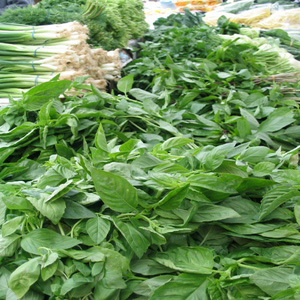It is customary in the Western Church, since at least the 10th century, for the priest to bless herbs on the Solemnity of the Assumption. The Eastern Church likely had a similar formulary much earlier.
As a point of liturgical fact, the Church asks God to bless herbs and flowers –and thus us– to remind all of us of the gifts God has given us for our sustenance, healing and beauty. In many places the faithful had all their flowers blessed, especially those closely associated with the Blessed Virgin Mary. Herbs blessing, therefore, is another example of giving thanks, a key theological and liturgical point in our life of faith. While customary it is not likely to be used in many parishes. The collects for the herbs blessing rich and savory.
The Directory on Popular Piety and the Liturgy (2001) says of herbs blessing:
The Assumption of the Blessed Virgin Mary (15 August) is deeply imbedded in popular piety. In many places the feast is synonymous with the person of Our Lady, and is simply referred to as “Our Lady’s Day” or as the “Immacolada” in Spain and Latin America.
In the Germanic countries, the custom of blessing herbs is associated with 15 August. This custom, received into the Rituale Romanum (200), represents a clear example of the genuine evangelization of pre-Christian rites and beliefs: one must turn to God, through whose word “the earth produced vegetation: plants bearing seeds in their several kinds, and trees bearing fruit with their seed inside in their several kinds” (Gen 1, 12) in order to obtain what was formerly obtained by magic rites; to stem the damages deriving from poisonous herbs, and benefit from the efficacy of curative herbs.
This ancient use came to be associated with the Blessed Virgin Mary, in part because of the biblical images applied to her such as vine, lavender, cypress and lily, partly from seeing her in terms of a sweet smelling flower because of her virtue, and most of all because of Isaiah 11, 1, and his reference to the “shoot springing
from the side of Jesse”, which would bear the blessed fruit of Jesus.
The Order of Blessing of Herbs is found here.
